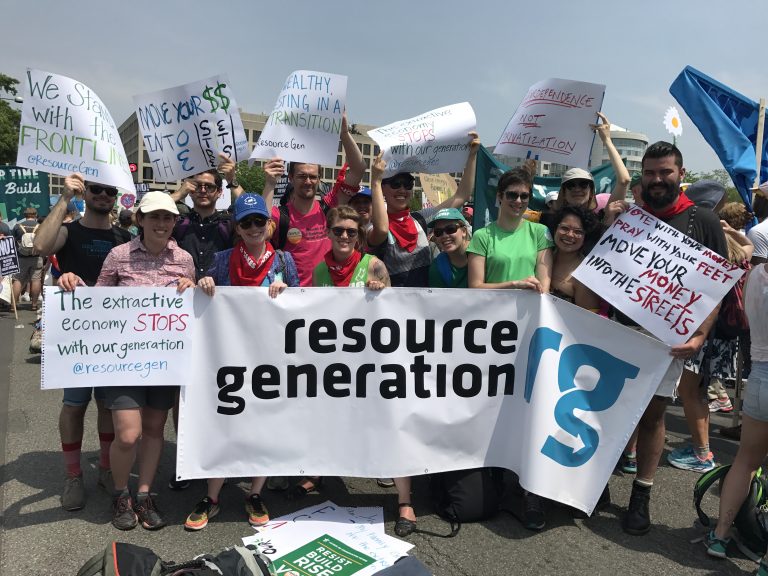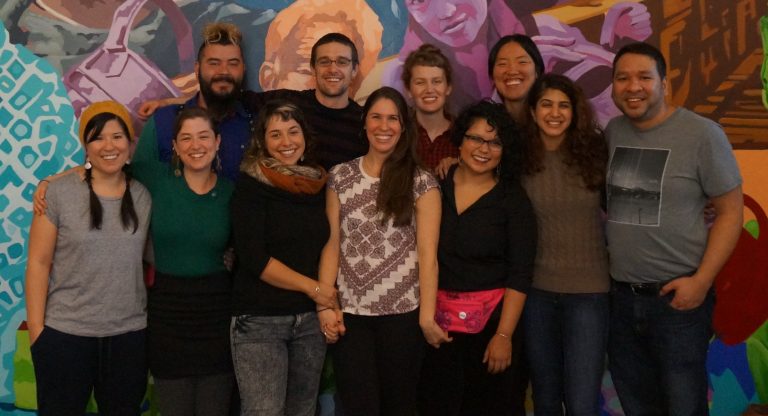From Beginning to End: Resisting Capitalism
Pandemics are an acute crisis. They put a highlighter on the racial and economic inequities that are chronic, ongoing crises. During this time, Johns Hopkins is keeping a tally of the confirmed cases and deaths from Covid-19. There are terrifying estimates but there is no ticker measuring the suffering and lives lost to poverty globally every year. Poverty is not held as a crisis around which everything else should rightfully pause. It is an implicit expectation that poor families will lose each other to prisons, to deportation, to hunger, to untreated addiction and insufficient health care en mass everyday. These are the consequences of a system dependent on a notion that some are disposable. While there are short-term beneficiaries, no one really wins in the game of capitalism, certainly not the planet or our collective physical and spiritual wellness.
There is nothing “natural” about capitalism. It wasn’t an inevitable progression, it was a strategic plan in response to mass peasant uprisings and labor shortages caused by a global pandemic, the Plague. As serfs and peasants got more organized in their fight against feudalism, the ruling class had to create a new system that would continue to protect and increase their wealth. Creating a wage-based system that was (and is) gendered, racialized, and profoundly ableist ensured that a significant number of people would always be kept poor and thus easily exploitable while others could ascend into comparative comfort and have a vested interest in helping protect the ruling class. In a wage-based system, rather than trading goods directly we trade hours of labor valued at vastly different amounts in order to buy goods or skills at a fairly fixed amount. All roles required for daily life are no longer necessary parts of the whole but labor itself becomes a commodity. Capitalism took force to create and requires daily force from government, military, and police to maintain. People have fought capitalism tooth and nail since the beginning because the writing has been on the wall since day one: this won’t end well.
Throughout the relatively short history of capitalism there is a trend where disasters are times when the poor get poorer and the wealthy consolidate power. From the plague to the Great Depression to the 2008 housing crash – history is full of moments when this pattern repeats itself and we’re living in one right now. This is a moment of extremes where, for example, Jeff Bezos’ fortune grew by 25 billion in 4 weeks while Amazon workers went on strike for paid sick leave. Meanwhile, some of us got stimulus checks that were not needed and many who needed them most were left out. We’re in a moment when half of Americans don’t know if they’ll be able to make rent next month and simultaneously there are an estimated 618,000 U.S millennial millionaires.
One way to change this path is through wealth redistribution. At RG, when we talk about wealth redistribution, it is a harm reduction strategy. It’s a recognition that the system is set up so that wealth will magically keep accumulating itself unless it’s actively redistributed. (It’s like debt, only in reverse.) Redistribution means circulating rather than hoarding excess wealth, and it is one of the lowest rungs on the ladder: a tangible way for people with wealth to practice solidarity with poor and working-class communities. It’s a crucial starting place, not one that needs to be overly glamorized or intensified, just a thing to do. We all have roles to play in resisting capitalism, now is a great time to find yours and play them well.
Globally, the top 1% now own 45% of the world’s wealth. This is a reflection of there not being mechanisms for forced redistribution in place. Tax shelters, cuts, exemptions, and the ongoing deterioration of workers’ rights allow for massive stockpiling of private wealth passed down through inheritance. If we continue down this path, it doesn’t end well. Until these systems change, voluntary redistribution is a main mechanism for those with wealth and class privilege to commit to being part of a different future. You can start by taking the giving pledge, signing the #sharemycheck campaign, joining us June 8th for a (this has passed –>virtual workshop on wealth redistribution,) and supporting ongoing social justice organizing that aims to heal and uproot the harm of racial capitalism.
To learn more:
- Caliban and the Witch by Silvia Federici
- Article: The Bailout is Working for the Rich
- Canadian Pledge with interactive graphics on how much to give: #ShareMyCheque
- Fortification Series: For past, present and future visioning in the of Covid
- Movement Generation’s Just Transition Zine


